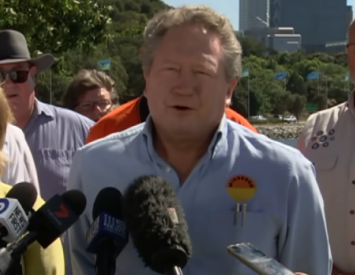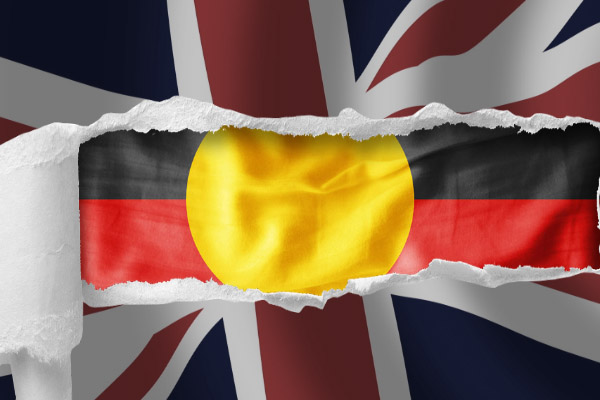Australia should persist in republicanism because it is our best chance to improve the lives of each and every citizen, writes Dr Robert Wood.
IF WE KNOW we must put an end to this colony by putting an end to this nation by starting a republic, we must also acknowledge that the republic will also come to an end.
A republic seems to be a future hope because it has not arrived yet. Still, we must know that the republic itself is a work in progress. It will age and fade. It will seem outdated. And this particular progressive cause will flicker and die out. In short, the republic will prove to be less than enough. So if we know that is the case, why should we persist with republicanism?
We should persist with the republic, in the face of concrete doubt, simply because it represents a step towards something better. The best may never arrive – for nothing is ever perfect – but it should not stop us in our quest to make a difference, our desire to improve in the collective.
A republic represents then, a change to our government — a chance to make amends, to reconcile us to our place in history, to our role in the world as a leader and a beacon. It is a chance to, quite simply, make a difference to each and every citizen.
The republic means re-writing the Australian Constitution, not only changing our head of state. It means re-imagining what it means to belong to this continent, to be part of something bigger than oneself — it is about serving the public we know to be here yet remains unseen by contemporary politics. In that way, the nation and today’s politicians have a fetish for tradies and infrastructure, refusing to think about the homeless, the addicted, the abused, the neglected and the vulnerable.
There is, in today’s governmentality, bipartisan support for middle-class welfare, inaction on Indigenous issues and a border policy that is wholly cruel. A republic in and of itself does not guarantee we solve such questions, but it does re-orient us towards them by asking everyone here to look after each other. In that way, a republic means thinking about our emotions as well as our values.
A republic must be founded on tolerance, inclusivity and justice. But it must also be compassionate, therapeutic and activist. It must seek to empathise with people who are suffering, both materially and spiritually; it must offer healing through action to those who have been denied and it must seek out practical forms of action that alleviate suffering. This final approach means we cannot rest on national laurels, thinking only of citizens — not when there is so much hardship on this continent and in our global neighbourhood.
Republics, of course, come and go — and one only needs a lesson in French history to see the pitfalls of thinking they can solve all issues. Sovereignty takes many languages, braided together, sometimes in question, sometimes in conflict. And if our republic is to resonate emotionally, then we need to know that the language we use to name who we are expresses our feelings as well.
And this then, is where we come to the historical legacy of invasion and the White Australia policy, which linger today no matter what the boosters say.
Australia as an idea is founded on terra nullius and the exclusion of non-white people. It is time to rectify that by having different people – Aboriginal people, immigrants of colour – at the table. It is up to them, it is up to us, to help determine our future government.
By opening out our idea of democracy, we can feel our way towards a republic that matters. And not as a simple response to a good life of expensive objects and happy lifestyles, but as one that shines a light on what it is to belong to this country, to care for one’s community and to lead by example.
The end of the republic won’t happen in my lifetime, but the start of it might. We know, though, that when it is inaugurated, we must also consider its demise.
When we are born, we know somewhere deep in our selves that we will die. Maybe we come to articulate that as children, maybe we only recognise this fact when we go to our funeral. Come what may, to be born is to die sometime later. In between though, we have to live. And that means living as good a life as any — no matter how we define it, no matter how much we fail.
A republic means a new kind of life, a kind of life that suggests we can support each other on this continent. That means also recognising there will come a time when this idea is replaced by something else — informed as well by the spirit of deeper sovereignty who knows the truth of this country beyond government itself.
Dr Robert Wood is chair of PEN Perth. A Malayali with East Indian Ocean connections, he lives on Noongar Country in Western Australia. The author of four books, Robert has held fellowships at the University of Pennsylvania and Columbia University.
Related Articles
- Australia is bearing the burden of too many Crowns
- The crucial role of poets in an Australian republic
- Becoming a republic will fix our broken system
- The Australian republic must enshrine rights for all
- An Australian republic must be founded on a non-violent society
 This work is licensed under a Creative Commons Attribution-NonCommercial-NoDerivs 3.0 Australia License
This work is licensed under a Creative Commons Attribution-NonCommercial-NoDerivs 3.0 Australia License
Support independent journalism Subscribe to IA.














